The No. 1 Sign There’s a Snake in Your Basement
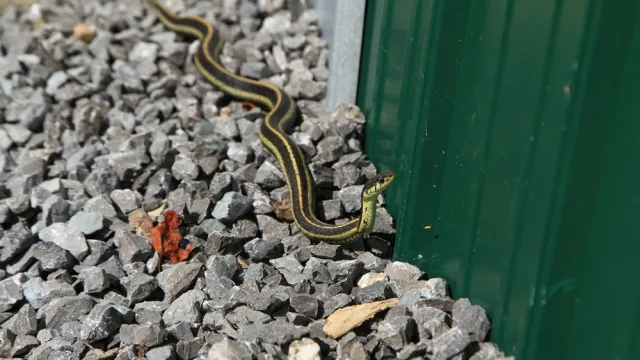
Basements are arguably the one part of a house that can vary the most from home to home. But whether you’re living with a purely functional subterranean floor that acts as a storage unit or a fully-to-partially finished area that can be used as living space, maintaining the part of your home that’s below ground can present its own set of challenges—including pest infestations. And according to experts, there’s one easy way to tell when a snake may have made its way into your basement. Read on to see the number one red flag that there’s a slithering intruder about.
READ THIS NEXT: You’re Inviting Snakes to Your Home If You Keep This in Your Yard.
A few things make basements a popular hiding place for snakes.
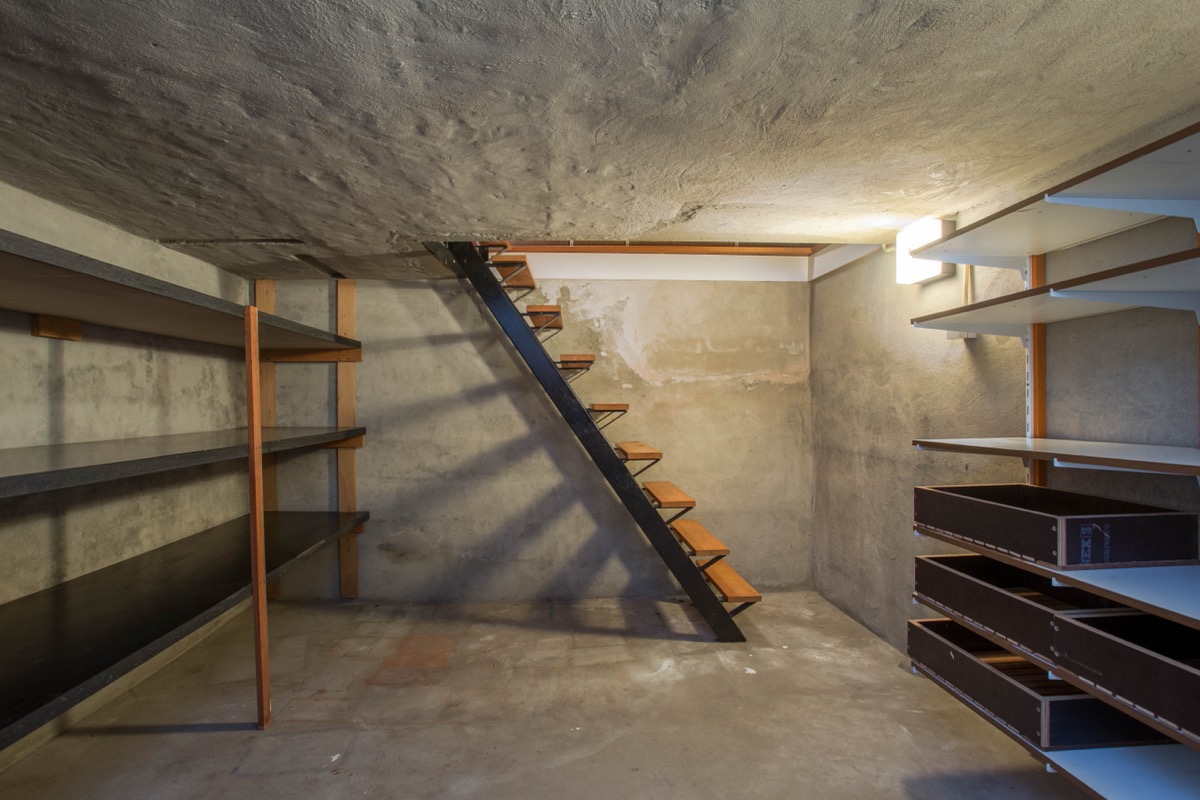
Besides being easily accessible from the ground, there’s a long list of reasons why your basement is one of the most likely rooms in your home where a sneaky snake might get comfortable. For starters, the freezing and thawing between seasons in some areas can put stress on a home’s foundation and eventually create cracks they can easily slither into when looking for warmth or food, according to Wildlife Removal U.S.A.
Snakes also prefer damp, cool areas with plenty of humidity or standing water, entomologist Ryan Smith, owner of Ant and Garden Organic Pest Control in Oregon, previously told Best Life. Add the fact that cluttered storage of clothing, blankets, or firewood make a perfect hiding place for the naturally shy creatures and their favorite prey—and it’s no surprise they feel comfortable turning your basement into their home.
Your eyes may not be the first thing that tips you off to a snake in your basement.
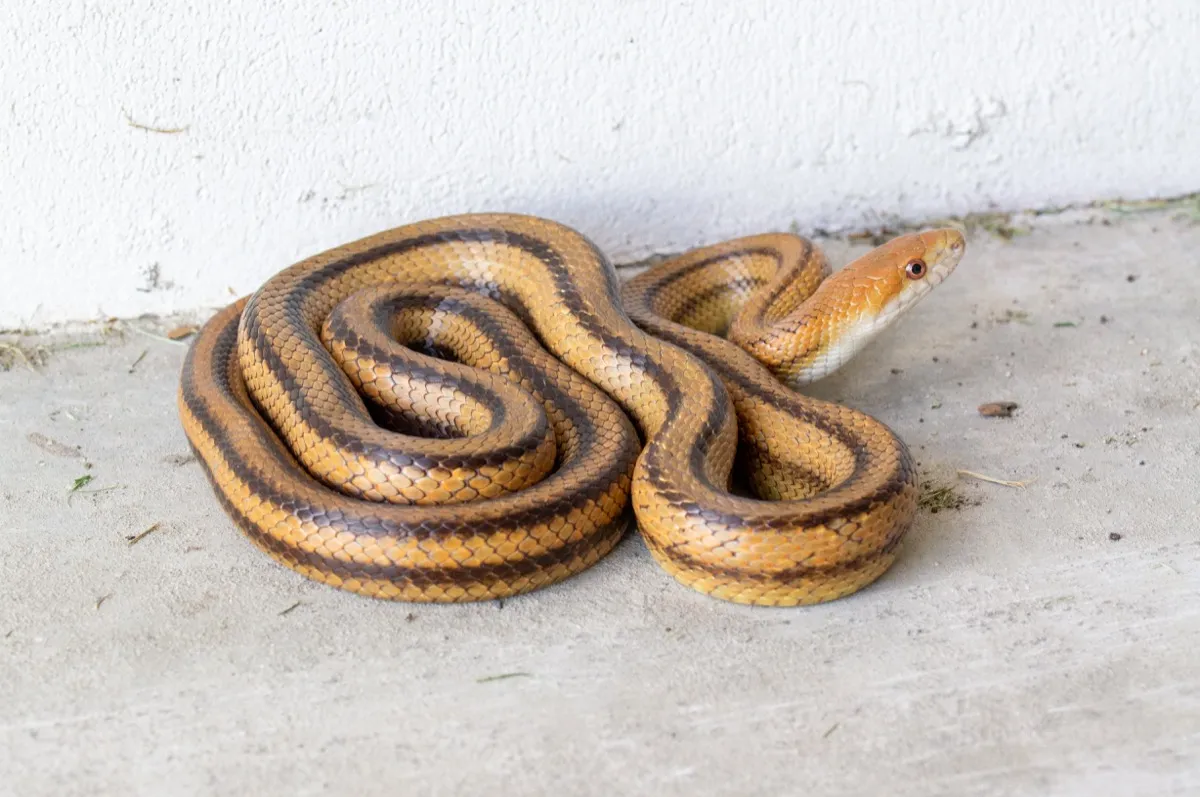
Whether indoors or out, snakes are the type of animal that is often seen but never heard. But according to some experts, enclosed spaces can make it more likely for you to pick up on something most people don’t even know exists: A snake’s odor.
According to Skye LaJaunie, using your nose could actually be what tips you off to hosting a slithering guest in your basement. “If you ever smell a musky scent, this might be a sign that you have snakes,” Skye LaJaunie, founder of LaJaunie’s Pest Control, tells Best Life.
RELATED: For more up-to-date information, sign up for our daily newsletter.
Snakes are also known for leaving behind another unique sign of their presence in your home.
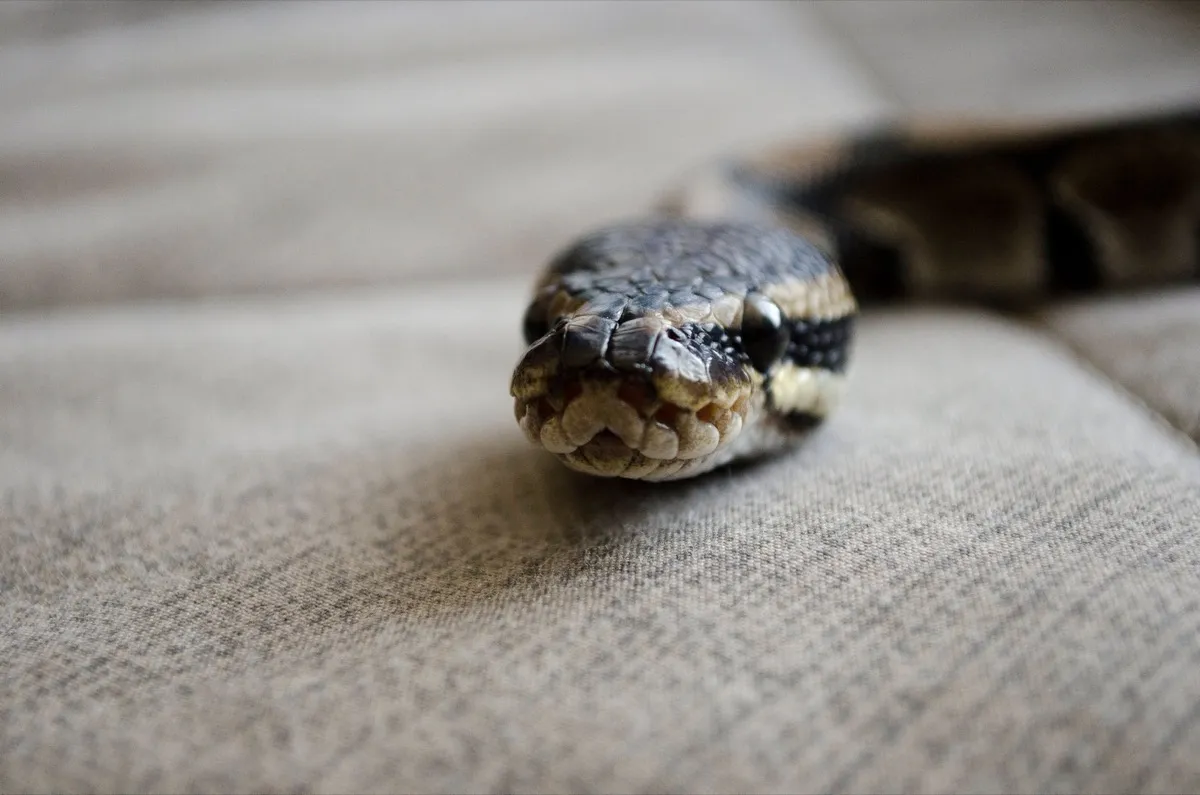
When it comes to being houseguests, snakes are actually relatively tidy. Unlike rodents, they won’t break into your food supply or chew through boxes, walls, and wiring. But there is still one unmistakable piece of evidence they leave behind.
“Snakes shed their skin about once every two months as they’re growing, and they’ll leave their old skin behind as they grow a new set,” Burns Blackwell, owner of Terminix Triad in North Carolina, tells Best Life. If one has taken up residence in your basement, “this means you’ll occasionally find abandoned snakeskin around,” he adds.
And just like any other animal, they also leave behind excrement. “Finding small droppings is a sign of snakes in your basement,” says Aliya Corbett of Corbett Exterminating. “These droppings look like small piles of rice and are more of a liquid than a solid, similar to bird droppings.”
It’s easier to keep snakes out of your basement if you follow simple tips from experts.
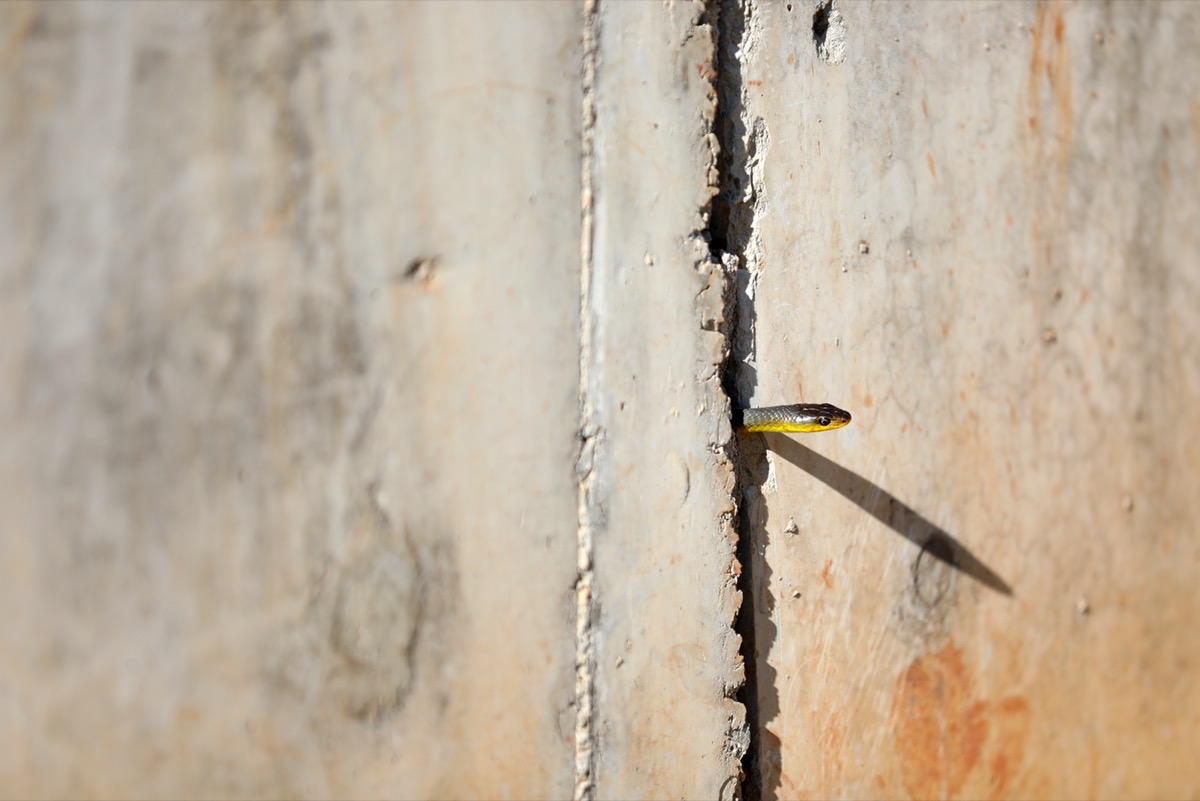
There’s nothing wrong with being on the lookout for snakes in your basement. But as with any pest problem, stopping them from ever getting in is a better strategy than dealing with them once they’re already indoors.
“In order to prevent visits from our resident reptiles, you’ll need to seal up that basement,” Andrew Christopher, owner of Western Mass Wildlife Removal, previously told Best Life. “Common entry points are leaky or open windows, rotted sills, and drafty bulkheads.”
And don’t overlook potential problems just because they’re small. “Snakes can get into your home through a gap the size of a pencil,” says Nancy Troyano, PhD, a board-certified entomologist with Ehrlich Pest Control. “It’s important to close up any holes, cracks, or crevices in the home, especially near the crawl space. Drainage areas are a perfect entry point for snakes.”
READ THIS NEXT: You’re Inviting Snakes Into Your Car With This One Bad Habit, Experts Warn.